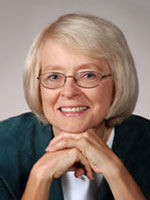

Adult caregiving hijacks your life. Few—if any—of us sign up because it sounds like fun. But when a loved one needs it, we step up. Ongoing, it’s a daunting job; at times, it’s downright harrowing. Once you are in the middle of it, reality warps.
An article published by the American Medical Association reported, “One of society’s greatest assets is the many family members who provide care to ill or disabled relatives.” One study estimated there were over 15 million American adults serving as unpaid caregivers—in 1998. And yet, the needs of those doing it remain unnoticed.
Last week in a single four-hour stretch, I spoke with three different women friends, each up to their ears in challenges related to caregiving for aging loved ones. Each had taken on the caregiving role in addition to the ample responsibilities they still held as professionals.
The first was weathering a major health scare with the man in her life. She had taken him in when he got sick and then became his advocate through all the tests and procedures. She was struggling to find the right boundaries in what she did for him.
The second needed to find a way to convince her parents to let the housekeepers, who were provided as part of their assisted living rent, into the apartment to clean. Her folks said there was no need. But she could smell their unit when she got off the elevator. She’d been cleaning every time she visited and worrying in the interim that they might get evicted.
The third has been spending her own money for a caregiver for her husband, so she can continue to work as a college professor. He has a non-Alzheimer’s version of dementia. She has power of attorney and pays his bills. His funds could easily cover the cost of the caregiver, but she thought she had to pay for it herself because he would have refused to let her spend money for that if he could still think. Reality tilts in odd ways when you’ve been a caregiver for long enough.
It’s easy to think it would be different if you had to do it. That you would draw clear boundaries and insist things be done your way. But that’s the cruelest part of the caregiver role. When it gets intense, you don’t realize the boundaries are out of whack or that what you’re doing doesn’t make good sense in the broader scheme.
It’s a lot like the classic experiment with frogs. They did a study where researchers put a frog in hot water. It jumped out to safety immediately. But if the water was cool when the frog was put in and was heated gradually, the frog kept swimming until the water was so hot the frog died.
We do the frog-in-slowly-warmed-water thing as caregivers. As the disease progresses beyond what we can really handle, we just keep going. Our own lives evaporate. We think we are doing fine when we’re not.
Three years ago, I became caregiver to my boyfriend when he was diagnosed with non-Hodgkin’s lymphoma. Every day there was a new problem, and always one with which I had zero experience. With each new side effect, I had to figure out something new that was needed to keep him safe and, hopefully, comfortable. The volume of work was massive, and the possibility I might hurt him by not doing the right thing was terrifying. Yet when friends asked me how I was doing, I’d say “Fine.” I wasn’t being a stoic angel of mercy. I was too worn out emotionally to find more honest words.
In an ideal world, unpaid caregivers would have mandatory breaks. No one’s going to legislate that. So it’s up to the rest of us to make a difference. If you know someone who’s caregiving, do what you can to provide support. A hug is a good start. But then offer to do something specific.
I am all too guilty of saying “Call if you need anything” and leaving it at that. For a long-term caregiver, there’s not enough mental juice available to convert those words to something useful. “Would you like me to clean the kitchen?” Or “Why don’t I sit with Aunt Irma for the afternoon so you can get away?” works better.
Caregiving is hard duty. If we all remember this and offer support in all the ways we can, we can keep these caring folks but ending up in need of care themselves.
***************
Mary Lloyd is a speaker and writer and author of Supercharged Retirement: Ditch the Rocking Chair, Trash the Remote, and Do What You Love. For more, see her website, www.mining-silver.com.

Leave a Reply